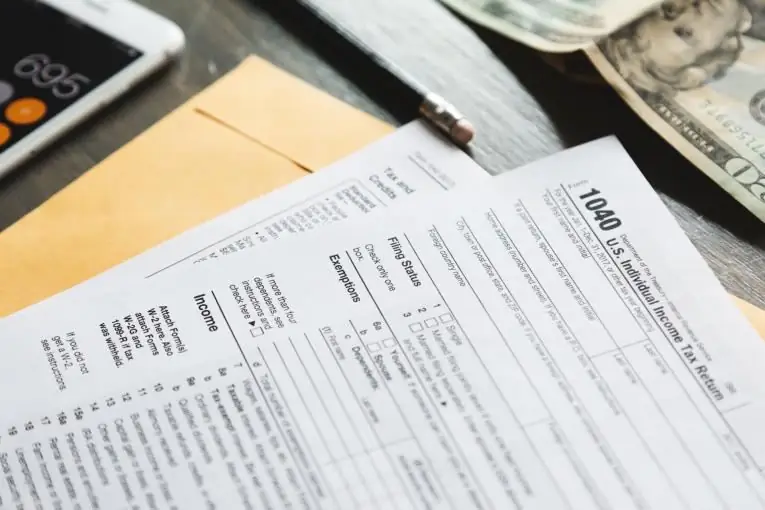2026 Author: Howard Calhoun | calhoun@techconfronts.com. Last modified: 2025-01-24 13:10:37
Every organization, regardless of its size, in the course of carrying out activities of almost any kind, is faced with the need to use cash. And if, as a rule, non-cash payments are used to pay for the necessary materials or ordered services, then payment for travel and some other expenses occurs with the help of cash. To do this, a cash desk is created at the enterprise, and accounting of cash transactions must be kept in accordance with legislative acts and regulatory documents.

The organization of control over cash is carried out by the accounting department, while its efforts are aimed at strengthening payment discipline, as well as ensuring the correct use and distribution of financial resources. In turn, the accounting of cash transactions implies the correct, complete and timely documentation, as well as the legality of cash transactions.
Synthetic, as well as more in-depth analytical accounting of cash transactions and monetary documents includes the maintenance of relevant accounts. For example, on a certain account number 50 (in the chart of accounts it is called "Cashier"), the balance, receipt and issuance of all cash and monetary documents related to the entire general cash desk of the enterprise are reflected. If necessary, a subaccount with the number 50-1 is opened, called the "Cashier of the organization", and a separate account must be opened for each currency.
Account 50-2 (name - "Operating cash desk") is needed if the organization carries out the movement of funds at the cash desks of operational sites, commodity offices and stopping points.
Sub-account number 50-3, called "Money documents", reflects postage stamps, fully paid air tickets, promissory notes, and state duty stamps in the cash register in the amount of real (actual) costs incurred in their acquisition. Analytics in this case involves accounting for monetary documents by their types.

Accounting for cash transactions at an enterprise is impossible to imagine without the execution of the relevant documents. Their list includes incoming (KO-1) and, accordingly, outgoing (KO-2) orders, a journal for reflecting (registration) of all types of incoming and outgoing cash documents (form KO-3), as well as a cash book of the approved form KO-4.
All operating organizations usually receive the cash they need from theirsettlement accounts. This requires another document of the established form - a cash check. The servicing bank issues such checks to organizations in the form of books containing 25 or 50 checks.
Cash warrants have their own procedure for filling, regulated by the relevant regulatory documents. Moreover, such documents can be drawn up both manually and using a computer.
The cash book is a kind of register. In it, accounting of cash transactions is carried out in chronological order, and the correctness of the conduct is controlled by the chief accountant. An organization can have only one such book, and it must be clearly numbered, carefully laced and sealed without fail. Erasures and corrections in documents that support the accounting process are not allowed. In exceptional cases, the corrections made must be certified by the signatures of the cashier and, of course, the chief accountant.
The following employees of the enterprise can process cash documents: chief accountant, accounting employee or any other person determined by the head in agreement with the chief accountant, which should be reflected in the relevant administrative document. In cases where for some reason (a small company) there is no accounting department and no chief accountant either, cash documents are processed by the head himself. The basis for the preparation of cash documents are various papers: payment and settlement statements, checks, statements, invoices.

For the normal functioning of the enterprise, a clear control of all areas of activity is a prerequisite. That is why the accounting of cash transactions requires special attention and systematization. In turn, the correct documentation and ensuring the safety of funds and monetary documents guarantees the satisfaction of all urgent needs of the enterprise related to cash.
Recommended:
Accounting documents are The concept, rules for registration and storage of accounting documents. 402-FZ "On Accounting". Article 9. Primary accounting documents

Proper execution of accounting documentation is very important for the process of generating accounting information and determining tax liabilities. Therefore, it is necessary to treat documents with special care. Specialists of accounting services, representatives of small businesses who keep independent records should know the main requirements for the creation, design, movement, storage of papers
What is labor rationing? Basic concepts, organization, types, methods of calculation and accounting

Thinking about what labor rationing is, many of us have associations of production, an uninterrupted workflow. This term is of great importance in economic planning. And although today you can often hear the opinion that the rationing of the work of workers is an echo of the Soviet system of production, most industrial enterprises are in no hurry to abandon the use of this tool
Control of cash operations of the bank. Overview of cash transactions control systems

Since various kinds of fraud often occur in the field of cash register accounting, every year the control of cash transactions becomes more and more complicated, tougher and modernized. This article discusses the role of the cash desk in the enterprise, the rules of conduct, as well as methods and systems for monitoring operations
REPO transactions. REPO transactions with securities

REPO transactions are procedures during which the sale of any valuables is carried out, accompanied by their repurchase after a specified period at a price fixed at the time of the transaction. Repurchase is mandatory, representing the final (second) stage of the transaction
Accounting for working hours in the summary accounting. Summarized accounting of the working time of drivers with a shift schedule. Overtime hours with summarized accounting of wor

The Labor Code provides for work with a summarized accounting of working hours. In practice, not all enterprises use this assumption. As a rule, this is due to certain difficulties in the calculation

